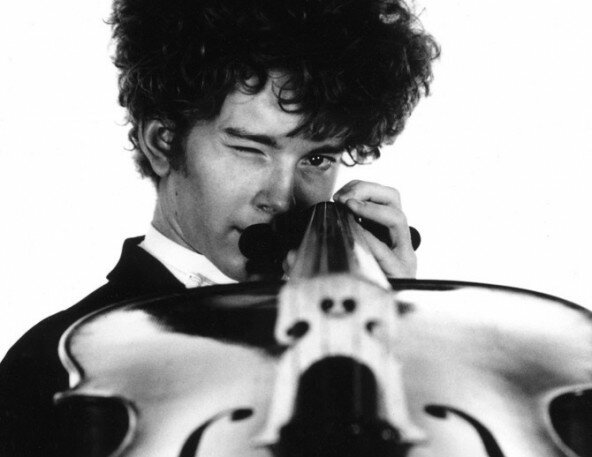
From the time he first arrived five years ago, a tousle-headed, lanky kid of 22, to take up the position of principal cellist for the Seattle Symphony, Joshua Roman has been a pied piper. Almost any time he has appeared here as soloist, with an orchestra, in chamber music or in recital, he has drawn an enthusiastic crowd of people who might otherwise not go to a concert.
During the two years of his position with the orchestra here, before he took off on a solo career, Roman worked hard, playing all sorts of music in all sorts of venues, with all sorts of groups. He has a natural facility for conecting with an audience. While still here, he was appointed artistic director of TownMusic at Town Hall, and given the opportunity to craft programs which reflect his varied musical influences and ideas.
Since leaving, he has expanded what he did here to the world stage, but he remains dear to the hearts of Seattle fans who turn out in droves to hear any performance he gives.
Last Sunday, Roman returned to Town Hall for the first of the 2011-2012 TownMusic series, to play all six of the Bach Cello Suites in a marathon solo performance. The concert started at 4 p.m. and, with a couple of fifteen-minute breaks and a two-hour dinner intermission, it lasted until after nine.
Town Hall was sold out, and the audience made clear its pleasure in every note Roman played.
Bach wrote these dance suites between the ages of thirty-two and thirty-eight, no one knows for what occasions or what instrument, though they seem to suit cello or viola da gamba best. Many of the most famous cellists of the past century have performed them, such as Pablo Casals, who disinterred them from undeserved oblivion, YoYo Ma today, and baroque cellists like Anner Bylsma.
The suites attract continuing interest from performers, who revisit them time and again as they grow and mature, and find new insights into them. Roman is by no means the first young cellist to tackle them, and like his predecessors, he is likely to come back to them again and again.
Sunday’s performance was technically excellent, and there were some parts where he found the musical depths and portrayed them sublimely. Such was his entire performance of Suite No. 3 in C Major. Roman seemed in the groove, one with his cello. His tempos felt just right, his cello sang, the musicianship came through and the result was moving and wholly absorbing.
His performance had felt a bit scattered to that point, as though he had not had time to settle in, though he rose to the heights in his performances of the Sarabande in the Suite No. 1 which sounded like an extended soliloquy, and the familiar Prelude in Suite No. 2 with expressive phrasing.
Unfortunately the lengthy intermission came at the end of Suite No.3, and Roman did not again achieve the heights of No 3.
To my mind Roman was accenting the wrong note in each phrase of the Prelude in Suite No. 4, changing the shape. It is perfectly permissable for a player to phrase as he understands the music, and often a player can convince the listener that this interpretation is perfectly acceptable, if it is coherent. I was not convinced here. (Several times the Allemandes felt too fast for the music, particularly in Suites 1 and 2, but most of the Sarabandes were thoughtfully played, introspective or like a private prayer.)
The last Suite, No. 6, is bright and cheerful. It’s also the most difficult to play. Roman had no trouble with the fast and tricky sections high on the top string in the Prelude, playing them with lovely tone, some of it at warp speed.
All in all, the performance consistently engaged the interest but was somewhat uneven, often good, rarely great. It would be enlightening to hear Roman play the Suites again, maybe in twenty years, and then again in forty (for another generation).